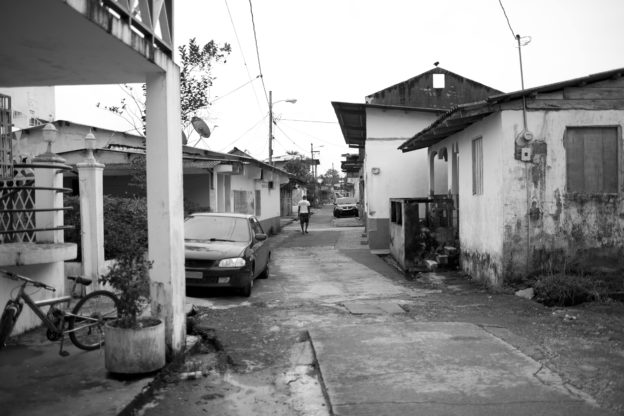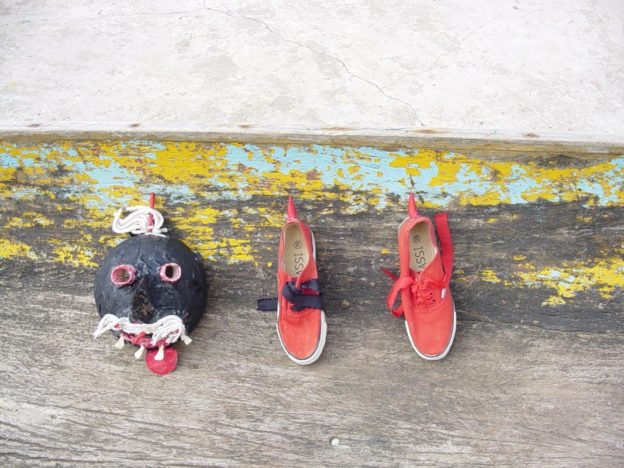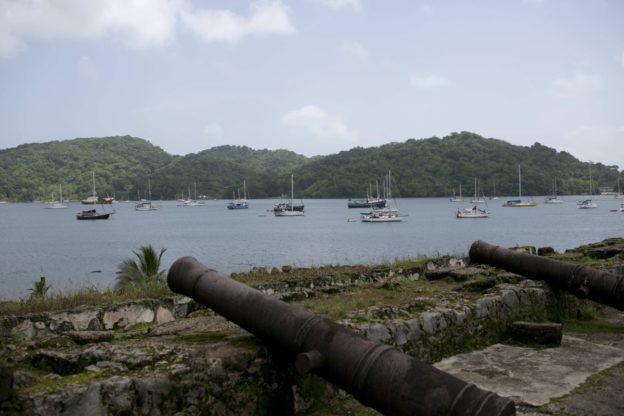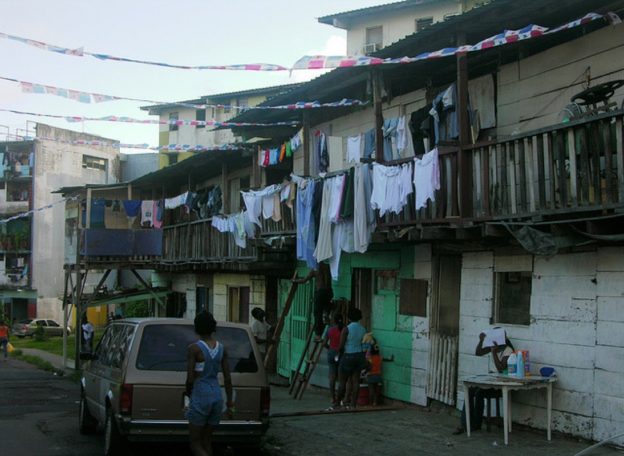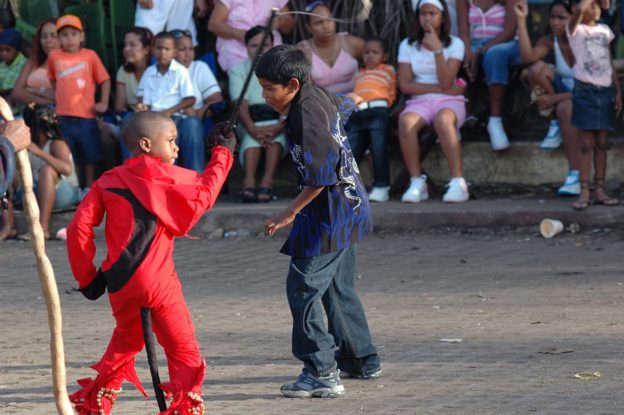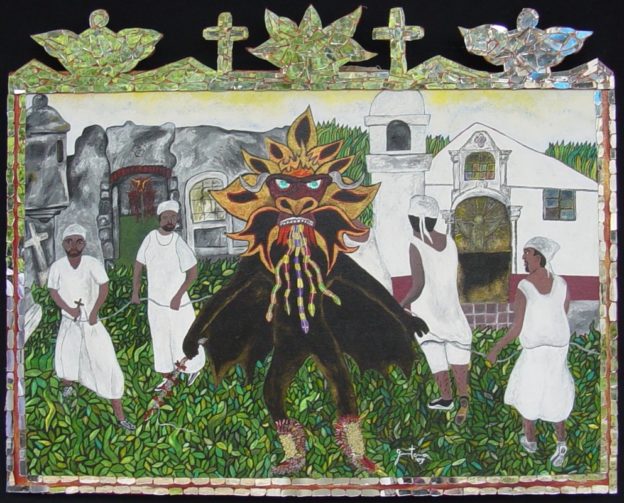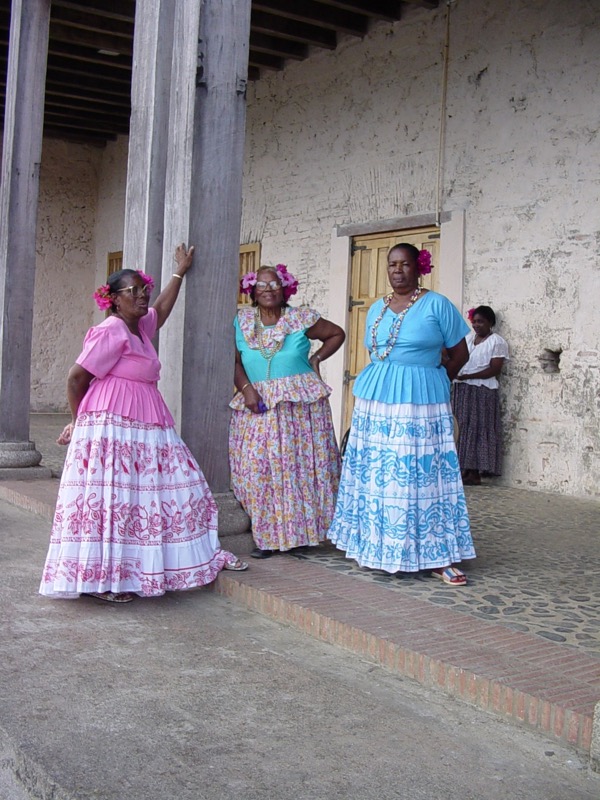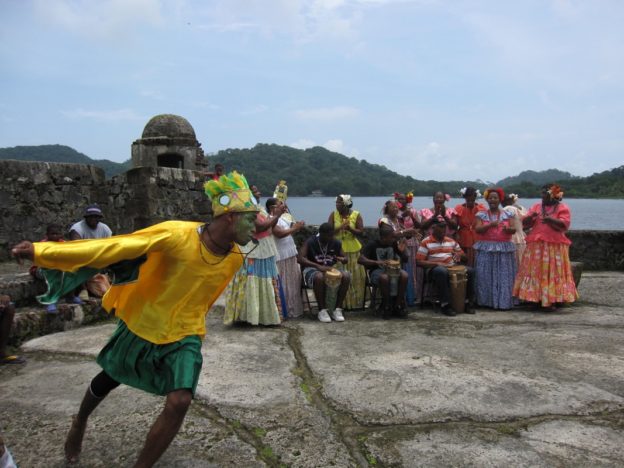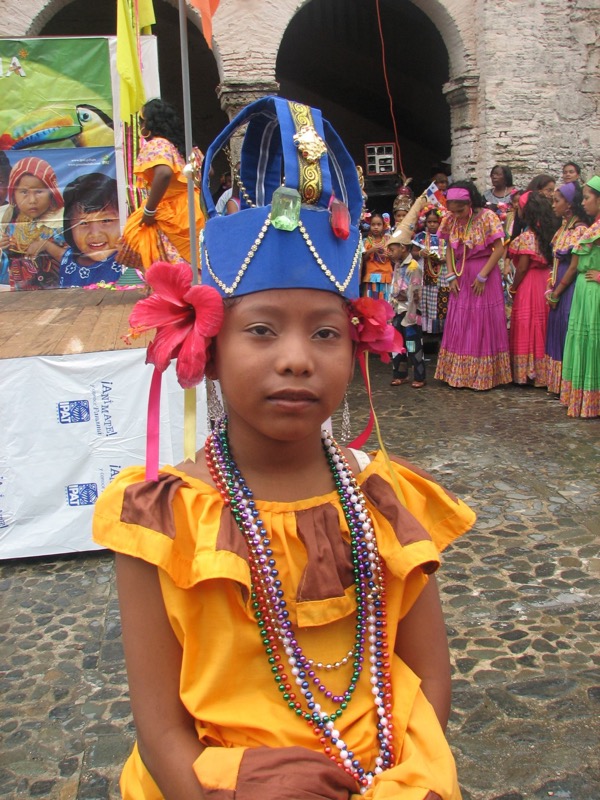In this excerpt, Sandra Eleta discusses her earliest encounters with Portobelo and how the generous acts of a man from the French Antilles named Dorcy caused her to settle and work in Portobelo.
In this excerpt, Chavarría discusses his mentor Celedonio Molinar’s lasting legacy to the town and to the Congo tradition, including a charge to embrace the tradition with pride and joy.
In this excerpt, Molinar discusses the process by which the Major Devil is chosen and trained for the role. He also clarifies that he ascended to the role of Major Devil in Nombre de Dios and arrived in Portobelo with the experience and title to play the role.
In this excerpt, Esquina discusses the changes she has seen in the Congo tradition over the course of her lifetime. Specifically, she talks about changes that she has witnessed in ways in which the devil character is played.
In this excerpt, Esquina discusses the changes she has seen in the Congo tradition over the course of her lifetime. Specifically, she talks about the role that a character named “Mama Guardia” once played.
In this excerpt, Esquina discusses the changes she has seen in the Congo tradition over the course of her lifetime. Specifically, she talks about the role that Pajarito, the Little Bird, once played in the Congo game, and the ways in which the character and the game have shifted. The construction of the road signaled the end of the game as one between neighboring Congo Kingdoms who competed to capture each others’ palacio/palenque. The contemporary game is between the discrete Congo communities and the character of the devil.
In this excerpt, Esquina discusses the changes she has seen in the Congo tradition over the course of her lifetime. Specifically, she talks about the role that the princess character once played.
